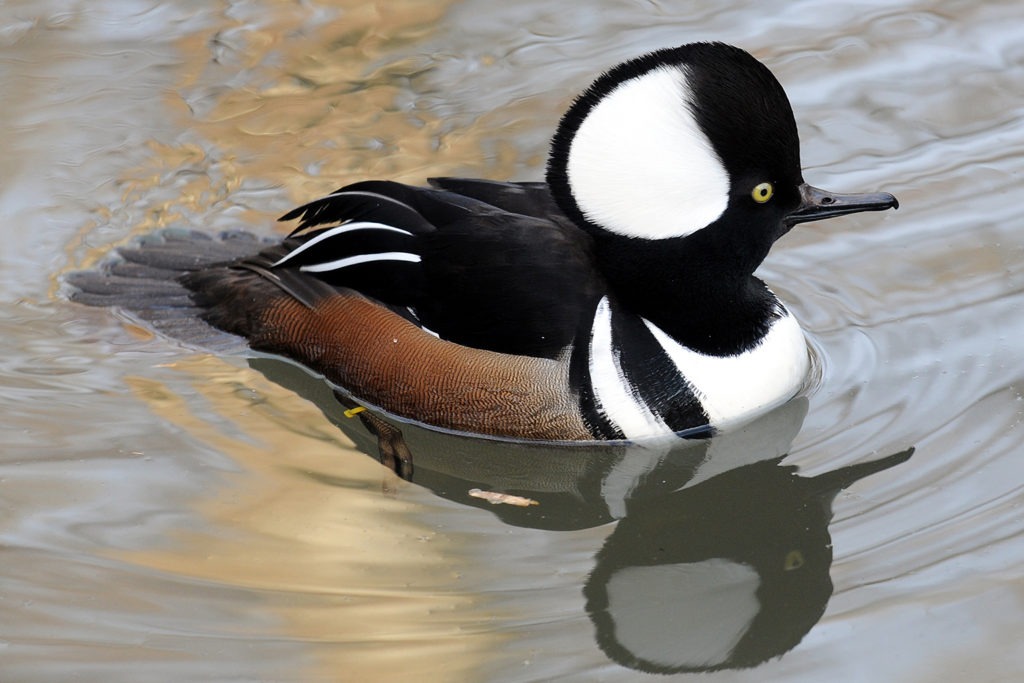Overview
“Where I live”
The hooded merganser is an exclusively North American duck. Hooded mergansers leave inland lakes and ponds in the fall and migrate to the east and west coasts of the U.S.
During the winter, they can be seen in the Chesapeake Bay region, seeking freshwater wherever possible. Similarly, they can be seen in the Marsh Aviary exhibit in the Maryland Wilderness at the Maryland Zoo.
“How I live there”
The hooded merganser is a diving duck that prefers running water, freshwater, and woods. During breeding season, it is found on clear-water streams, ponds, and lakes. In winter, it seeks forested wetlands, brackish estuaries and tidal creeks.
Hooded mergansers do not eat much plant material. Their diet is made up mostly of small fish, crawfish, and aquatic insects. Unlike the beaks of most waterfowl, theirs are long and serrated. They catch prey by diving underwater and are well-adapted to see and catch fish underwater.
“Making my mark”
During courtship, the male hooded merganser makes a distinctive, rolling, frog-like crrroooooo call that can be heard from a distance.
Raising Young
Hooded mergansers renew pair bonds yearly and split up at the start of incubation. Females nest in cavities found in trees, usually very near water. Very often, they will come back to the same nesting sites used in the past. Females line their nests with downy feathers from their own chests. They lay clutches of 6-15 eggs and incubate them for 29-37 days.
“What Eats Me”
Because of the protection afforded by nest cavities, egg survival seems to be quite high with hooded mergansers but ducklings are more vulnerable to predation once out of the nest.
Conservation
While the overall population of hooded mergansers in North America appears stable, the number wintering in the Chesapeake region has been dropping recently.
Taxonomy
- Kingdom: Animalia
- Phylum: Chordata
- Subphylum: Vertebrata
- Class: Aves
- Order: Anseriformes
- Family: Anatidae
- Genera: Lophodytes
- Species: cucullatus


